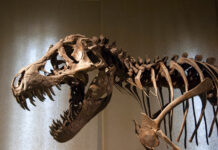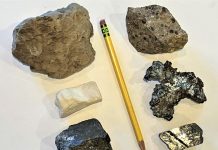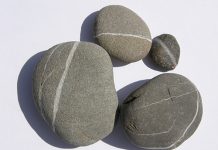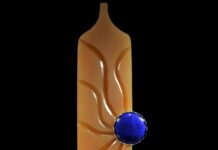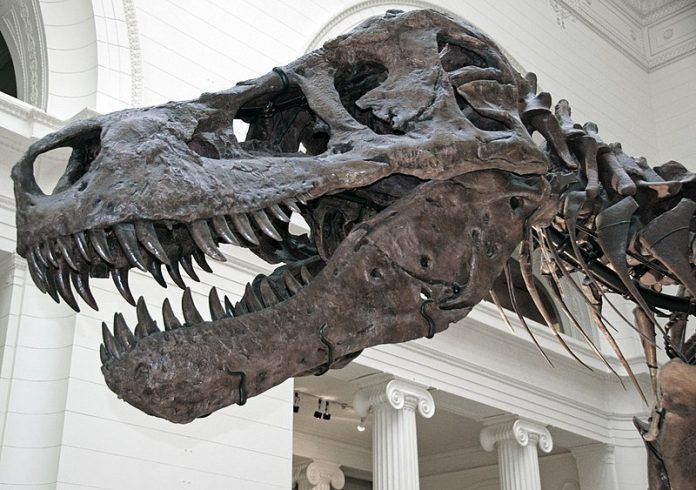
By Jim Brace-Thompson
Although some might beg to differ, most paleontologists now tend to agree: birds are dinosaurs! Specifically, avian theropod dinosaurs. New research suggests they are not only genealogically linked to non-avian theropod dinosaurs but also shared certain behaviors. And behavior is one difficult thing to fossilize, for sure!
In the journal Science Bulletin, a team of paleontologists led by Shundong Bi (Yunnan University) and Xing Xu (Chinese Academy of Sciences) describe a 70-million-year-old fossil dinosaur atop a nest containing a clutch of eggs from east China’s Jiangxi Province. They say that this one spectacular fossil find provides clear evidence of the behavior called incubating or brooding eggs in a nest.
While other oviraptor dinosaur bones from the Cretaceous Period have been found in association with fossilized eggs, scientists were never sure if the dinosaurs were actually incubating the eggs or were simply laying the eggs prior to leaving them on their own, like many modern reptiles do. Rather than brooding, perhaps they were caught by a volcanic ashfall, sandstorm, or flashflood event while laying their eggs. In fact, back in the day, it was even suspected that oviraptors found in association with eggs were eating some other dinosaur’s eggs. Hence, the name “oviraptor,” which is derived from Greek words meaning “egg thief.”
Bi and Xu’s team have fleshed out indicators that their fossil shows clear evidence of bird-like incubating with a mother carefully tending her nest. For instance, among other things, they were even able to tease out oxygen isotopes within the eggshells that told them the temperature of the eggs. The temperature they deduced falls squarely within the range of contemporary bird eggs being brooded by a mother. Taking this alongside the posture of the skeleton atop the eggs and the fact that the eggs contained embryos at various stages of development, Bi and Xu see clear evidence of shared behavior between this dinosaur and contemporary brooding birds.
The line dividing birds from dinosaurs just got ever so thinner!


